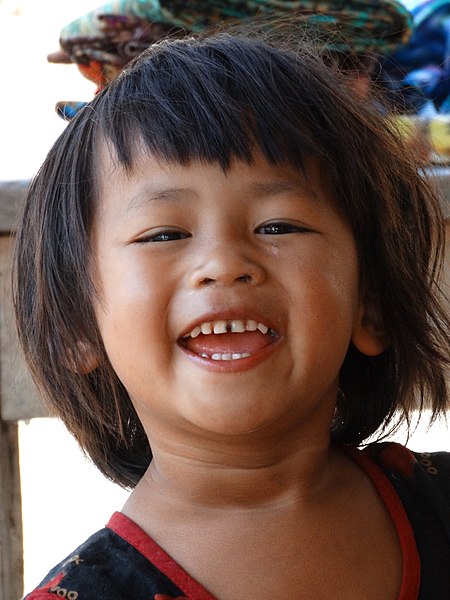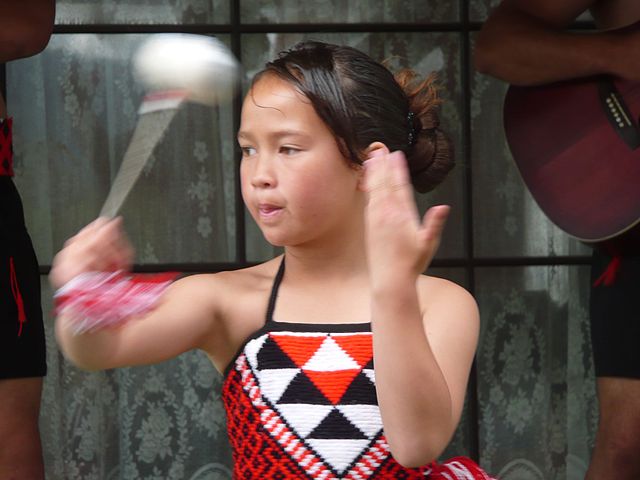
Each 9 August is celebrated as United Nations (UN) International Day of the World’s Indigenous Peoples.
Indigenous peoples are culturally distinct ethnic groups native to a place which has been colonized and settled by another ethnic group.
The Thammasat University Library collection includes several books about different aspects of the life and culture of Indigenous peoples worldwide.
On Monday, 9 August starting at noon Bangkok time, a special free Zoom webinar will be hosted by the Indigenous Knowledge Institute of the University of Melbourne, Australia.
As its website explains,
The Indigenous Knowledge Institute aims to advance research and education in Indigenous knowledge systems.
For any further information or with questions about the event, kindly write to this email address:
indigenous-knowledge@unimelb.edu.au
The event webpage notes,
The International Day of the World’s Indigenous Peoples marks the day of the first meeting, in 1982, of the UN Working Group on Indigenous Populations of the Sub-Commission on the Promotion and Protection of Human Rights.
To recognise this day, the Indigenous Knowledge Institute is hosting a one-day symposium to showcase and celebrate a variety of Indigenous knowledges from across the University of Melbourne and the community. We will discuss ways to draw Indigenous knowledges into the policy and education spaces.
If you would like to attend for the whole day, please book a ticket for both ‘Morning’ and ‘Afternoon’ sessions. The event will be dual-delivery. If you would like to watch online, please select ‘Zoom webinar access’.
Students are invited to register at this link:
The UN webpage for International Day of the World’s Indigenous Peoples observes,
There are over 476 million indigenous peoples living in 90 countries across the world, accounting for 6.2 per cent of the global population. Indigenous peoples are the holders of a vast diversity of unique cultures, traditions, languages and knowledge systems. They have a special relationship with their lands and hold diverse concepts of development based on their own worldviews and priorities.
Although numerous indigenous peoples worldwide are self-governing and some have been successful in establishing autonomy in varying forms, many indigenous peoples still come under the ultimate authority of central governments who exercise control over their lands, territories and resources. Despite that reality, indigenous peoples have demonstrated extraordinary examples of good governance, ranging from the Haudenosaunee to the National Congress of Australia’s First Peoples.
The COVID-19 pandemic has exposed and exacerbated many existing inequalities, disproportionately affecting populations all over the world that were already suffering from poverty, illness, discrimination, institutional instability or financial insecurity. From the perspective of indigenous peoples, the contrast is even starker. In many of our societies, the social contract, at the very least, needs some revision.
Permanent Forum on Indigenous Issues will organize a virtual commemoration for speakers to discuss redesigning a new social contract for indigenous peoples, where their own forms of governance and ways of life must be respected and based on their free, prior and informed consent.
What is a social contract?
This August 9, International Day of Indigenous Peoples, we must demand indigenous peoples’ inclusion, participation and approval in the constitution of a system with social and economic benefits for all.
That is why the 2021 theme is ““Leaving no one behind: Indigenous peoples and the call for a new social contract.” But, what does it mean?
A social contract is an unwritten agreement that societies make to cooperate for social and economic benefits. In many countries, where indigenous peoples were driven from their lands, their cultures and languages denigrated and their people marginalized from political and economic activities, they were never included in the social contract to begin with. The social contract was made among the dominant populations.
Over recent years and decades, various societies have sought to address this, including through apologies, truth and reconciliation efforts, legislative reforms, as well as constitutional reforms, while at the international level, these efforts have included the adoption of the United Nations Declaration on the Rights of Indigenous Peoples and advisory bodies such as the Permanent Forum on Indigenous Issues.
Despite the existence of international instruments to respond these inequalities, not all are embarked on the collective journey to ensure that no one is left behind, including indigenous peoples. Therefore, the building and redesigning of a new social contract as an expression of cooperation for social interest and common good for humanity and nature, is needed.
The new social contract must be based on genuine participation and partnership that fosters equal opportunities and respects the rights, dignity and freedoms of all. Indigenous peoples’ right to participate in decision-making is a key component in achieving reconciliation between indigenous peoples and States.
Did you know?
More than 86% of indigenous peoples globally work in the informal economy, compared to 66% for their non-indigenous counterparts
Indigenous peoples are nearly three times as likely to be living in extreme poverty compared to their non-indigenous counterparts.
Globally, 47% of all indigenous peoples in employment have no education, compared to 17% of their non-indigenous counterparts. This gap is even wider for women.
Exploring indigenous peoples’ economic and social rights
An ILO and Indigenous Navigator’s report demonstrates that indigenous peoples face significant obstacles in performing their traditional occupations and accessing decent work opportunities, education, and social protection, a situation that is being aggravated by the COVID-19 pandemic. Get to know more about this through data.

These events lead up to next year’s launch of the United Nations Educational, Scientific and Cultural Organization (UNESCO) Decade of Indigenous Languages 2022 – 2032:
At least 40% of the 7,000 languages used worldwide are at some level of endangerment. Indigenous languages are particularly vulnerable because many of them are not taught at school or used in the public sphere. Next year, we will start another important milestone to advocate for indigenous cultures: the Decade of Indigenous Languages (2022 – 2032).
Participants at the [2020] event, “Making a decade of action for indigenous languages,” on 28 February issued a strategic roadmap for the Decade of Indigenous Languages (2022-2032) prioritizing the empowerment indigenous language users.
More than 500 participants from 50 countries, including government ministers, indigenous leaders, researchers, public and private partners, and other stakeholders and experts, adopted the Los Pinos Declaration, at the end of the two-day event in Mexico City, which was organized by UNESCO and Mexico. The Declaration places indigenous peoples at the centre of its recommendations under the slogan “Nothing for us without us.”
The Declaration, designed to inspire a global plan of action for the Decade, calls for the implementation of the internationally recognized rights of indigenous peoples, expressed notably in the UN Declaration on the Rights of Indigenous Peoples of 2007, the UN System-wide Action Plan (SWAP) on the Rights of Indigenous Peoples of 2017, and other standard-setting instruments such as UNESCO’s Convention against Discrimination in Education (1960),the UN’s International Convention on the Elimination of All Forms of Racial Discrimination (1965), International Covenant on Civil and Political Rights, and International Covenant on Economic, Social and Cultural Rights (1966).
In its strategic recommendations for the Decade, the Los Pinos Declaration emphasizes indigenous peoples’ rights to freedom of expression, to an education in their mother tongue and to participation in public life using their languages, as prerequisites for the survival of indigenous languages many of which are currently on the verge of extinction. With regard to participation in public life, the Declaration highlights the importance of enabling the use of indigenous languages in justice systems, the media, labour and health programmes. It also points to the potential of digital technologies in supporting the use and preservation of those languages.
Building on the lessons learnt during the International Year of Indigenous Languages (2019), the Declaration recognizes the importance of indigenous languages to social cohesion and inclusion, cultural rights, health and justice and highlights their relevance to sustainable development and the preservation of biodiversity as they maintain ancient and traditional knowledge that binds humanity with nature.
Current data indicates that at least 40% of the 7,000 languages used worldwide are at some level of endangerment. While reliable figures are hard to come by, experts agree that indigenous languages are particularly vulnerable because many of them are not taught at school or used in the public sphere.
More statistical data will become available once UNESCO’s Atlas of Languages, a database about practically all human languages, becomes available later this year.

(All images courtesy of Wikimedia Commons)
